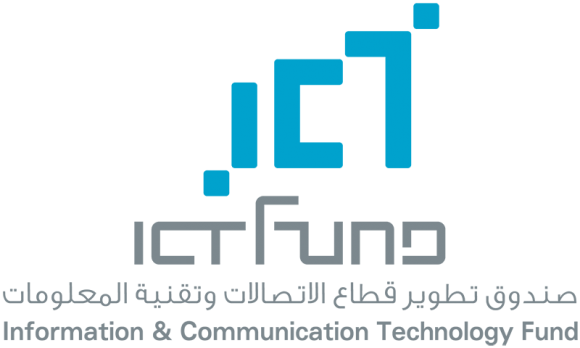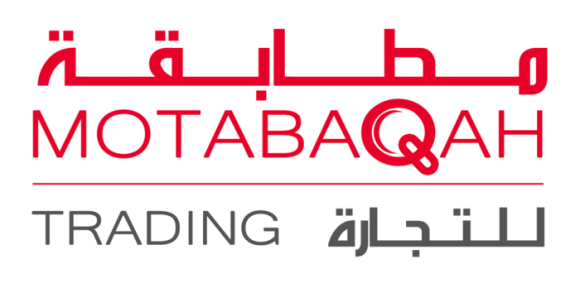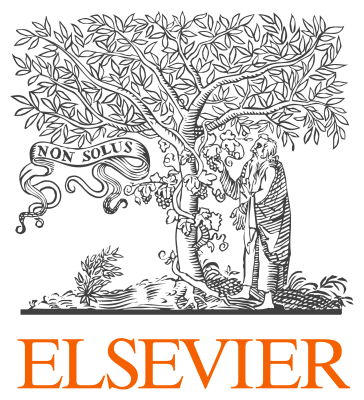2018 IEEE Global Communications Conference: Workshops: IEEE Workshop on Communication, Computing, and Networking in Cyber Physical Systems Program
Thursday, December 13
8:30 ‑ 9:15 am
CCNCPS-K1: Keynote 1
9:15 ‑ 10:00 am
CCNCPS1: Paper Session 1: CPS Communications
10:00 ‑ 10:30 am
Break: Morning Break
10:30 ‑ 11:15 am
CCNCPS-K2: Keynote 2
11:15 am ‑ 12:00 pm
CCNCPS2: Paper Session 2: CPS Resource Allocation
12:00 ‑ 1:30 pm
Lunch: Lunch
1:30 ‑ 2:00 pm
CCNCPS3: Paper Session 3: CPS and Sensors
2:00 ‑ 3:00 pm
CCNCPS-P: Invited Talk
3:00 ‑ 3:30 pm
Break: Afternoon Break
3:30 ‑ 5:00 pm
CCNCPS4: Paper Session 4: General CPS
Thursday, December 13
Thursday, December 13 8:30 - 9:15
CCNCPS-K1: Keynote 1
Trends and Perspectives for Internet of Things
Prof. Joel J.P.C. Rodrigues
Room: Conference Hall A: Part D
Chair: Amjad Gawanmeh (Khalifa University, United Arab Emirates)
Joel J.P.C. Rodrigues [S’01, M’06, SM’06] is a professor at the National Institute of Telecommunications (Inatel), Brazil and senior researcher at the Instituto de Telecomunicações, Portugal. Prof. Rodrigues is the leader of the Internet of Things research group (CNPq), Director for Conference Development - IEEE ComSoc Board of Governors, IEEE Distinguished Lecturer, Technical Activities Committee Chair of the IEEE ComSoc Latin America Region Board, the President of the scientific council at ParkUrbis – Covilhã Science and Technology Park, the Past-Chair of the IEEE ComSoc Technical Committee on eHealth, the Past-chair of the IEEE ComSoc Technical Committee on Communications Software, Steering Committee member of the IEEE Life Sciences Technical Community and Publications co-Chair, and Member Representative of the IEEE Communications Society on the IEEE Biometrics Council. He is the editor-in-chief of the International Journal on E-Health and Medical Communications, the editor-in-chief of the Journal of Multimedia Information Systems, and editorial board member of several high-reputed journals. He has been general chair and TPC Chair of many international conferences, including IEEE ICC, IEEE GLOBECOM, IEEE HEALTHCOM, and IEEE LatinCom. He has authored or coauthored over 650 papers in refereed international journals and conferences, 3 books, and 2 patents. He had been awarded several Outstanding Leadership and Outstanding Service Awards by IEEE Communications Society and several best papers awards. Prof. Rodrigues is a licensed professional engineer (as senior member), member of the Internet Society, and a senior member ACM and IEEE.
This keynote addresses a hot and updated topic focusing on Internet of Things (IoT), considering their most relevant trends and challenges for Internet of Things. It starts with an introduction to IoT and its typical application scenarios considering different verticals. Relevant aspects considering opportunities for IoT will be addressed, considering promising verticals. The Inatel Smart Campus, an open Campus for research on IoT, experiments, and concepts and technology validation will be presented. It is a project open for companies' participation and promotes the academy-enterprise interaction. It is a true living lab for several IoT verticals, including smart cities and smart homes. An initiative to prepare ICT professionals for new challenges regarding this new generation technologies for IoT will be presented. The communication ends with new trends and issues on Internet of Things, suggesting further research topics.
Thursday, December 13 9:15 - 10:00
CCNCPS1: Paper Session 1: CPS Communications
Room: Conference Hall A: Part D
Chair: Amjad Gawanmeh (Khalifa University, United Arab Emirates)
- Indoor Wired Communication for Connected Devices in Impulsive Transients
-
Neelima Agrawal (VNIT Nagpur, India); Prabhat Kumar Sharma (Visvesvaraya National Institute of Technology, India); Ankur Bansal (Netaji Subhas Institute of Technology, University of Delhi, New Delhi, India)
- Energy-Efficient Massive Content Delivery via Devices-to-Devices Communication
-
Zhe Yuan and Xuguang Zhang (NERCCN, Nanjing University of Posts and Telecommunications, P.R. China); Jianxin Chen and Liang Zhou (Nanjing University of Posts and Telecommunications, P.R. China)
- Optimal Secondary Users Selection for Cooperative Spectrum Sensing in Cognitive Radio Networks
-
Sanjay Kumar Dhurandher (NSIT, University of Delhi, India); Isaac Woungang (Ryerson University, Canada); Nitin Gupta (NSIT, University of Delhi, India); Rishabh Jain (Netaji Subhas Institute of Technology, India); Devesh Singhal (NSIT, University of Delhi, India); Joshika Agarwal (Netaji Subhas Institute of Technology, University of Delhi, India); Mohammad S. Obaidat (University of Jordan, USA)
Thursday, December 13 10:00 - 10:30
Break: Morning Break
Room: Conference Hall Foyer
Thursday, December 13 10:30 - 11:15
CCNCPS-K2: Keynote 2
From Centralized to Distributed to SDN for 5G and IoT Networking
Prof. Abbas Jamalipour
Room: Conference Hall A: Part D
Chair: Amjad Gawanmeh (Khalifa University, United Arab Emirates)
Biography: Abbas Jamalipour is the Professor of Ubiquitous Mobile Networking at the University of Sydney, Australia, and holds a PhD in Electrical Engineering from Nagoya University, Japan. He is a Fellow of the IEEE, IEICE of Japan, and the Institution of Engineers Australia; an ACM Professional Member, and an IEEE Distinguished Lecturer. He has authored eight technical books, eleven book chapters, over 450 technical papers, and five patents, all in the area of wireless and mobile communications. He was the Editor-in-Chief IEEE Wireless Communications, Vice President-Conferences and a member of Board of Governors of the IEEE Communications Society, and has been an editor for several journals. He was a General Chair or Technical Program Chair for a number of conferences, such as IEEE GLOBECOM2018, ICC2014, PIMRC2012, and WCNC2010. Dr. Jamalipour is an elected member of the Board of Governors, Executive Vice-President, Chair of Fellow Evaluation Committee, and the Editor-in-Chief of the Mobile World, IEEE Vehicular Technology Society. He is recipient of a number of prestigious IEEE awards and 15 Best Paper Awards. He is one of the highly cited authors in the field of cellular networks.
Existing wireless cellular networks are mainly designed based on a centralized architecture. They are mainly planned on a client-server networking paradigm that relies on complicated multi-layered hierarchical architectures. This creates long distance traffic backhauling and network bottlenecks which would result in long delays and congestion; thus not suitable for autonomous and connected vehicles of the future. On the other hand, recent distributed wireless networks can reduce per-node and network resource use while enabling complex applications not otherwise possible. Such architecture can be also applied to cellular networks, through technologies such as cooperative wireless computing, flexible link design, adaptation, and autonomous operation that already exist. Another way to improve the cellular network architecture is to apply the fundamentals of software defined networking (SDN) to design layers of system and abstractions that simplifies the deployment and management of extremely dense wireless cellular networks. SDN can programmatically decouple network architectures from infrastructure, thus making it easier for deploying new applications and services, as well as for tuning network policy and performance. When the SDN theory is applied, base stations perform basic packet-processing functions under the command of a logically centralized controller. Thus, SDN enables distribution of data-plane rules over multiple, low-cost network switches, hence reducing the scalability of the packet gateway and enabling flexible handling of data traffic over the cellular network. In this talk a new architecture design for future wireless cellular networks will be explored that can also facilitate the operation of emerging Internet-of-Things and the use of cloud-based core networks.
Thursday, December 13 11:15 - 12:00
CCNCPS2: Paper Session 2: CPS Resource Allocation
Room: Conference Hall A: Part D
Chair: Tanveer A Zia (Charles Sturt University, Australia)
- Machine Learning-based Occupancy Estimation Using Multivariate Sensor Nodes
-
Adarsh Pal Singh and Vivek Jain (International Institute of Information Technology Hyderabad, India); Sachin Chaudhari (International Institute of Information Technology, India); Frank Alexander Kraemer (Norwegian University of Science and Technology, Norway); Stefan Werner (NTNU, Norway); Vishal Garg (IIITH, India)
- State-of-the-art Data Replication Techniques in IoT-based Sensor Systems
-
Waleed Bin Qaim (KOÇ University, Turkey); Oznur Ozkasap (Koc University, Turkey)
- Energy-Efficient and QoS-Aware Multi-path Geographic Routing Protocol for WMSN
-
Fida'a Al-Quran and Moad Y Mowafi (Jordan University of Science and Technology, Jordan); Abdallah Almaaitah (Queens University, Canada); Eyad Taqieddin (Jordan University of Science and Technology, Jordan)
Thursday, December 13 12:00 - 1:30
Lunch: Lunch
Room: Conference Hall Foyer
Thursday, December 13 1:30 - 2:00
CCNCPS3: Paper Session 3: CPS and Sensors
Room: Conference Hall A: Part D
Chair: Tanveer A Zia (Charles Sturt University, Australia)
- Queue-Aware Joint ACB Control and Resource Allocation for mMTC Networks
-
Jun Li, Qinghe Du, Li Sun and Pinyi Ren (Xi'an Jiaotong University, P.R. China)
- A Joint Allocation Scheme of Control Tasks and Communication Resources in Cyber-Physical Systems
-
Shiwen Liu (Beijing University of Posts and Telecommunications, P.R. China); Kan Zheng (Beijing University of Posts&Telecommunications, P.R. China); Long Zhao (Beijing University of Posts and Telecommunications, P.R. China)
Thursday, December 13 2:00 - 3:00
CCNCPS-P: Invited Talk
Towards National Cyber Security Index: UAE case.
Prof. Jamal N. Al-Karaki
Room: Conference Hall A: Part D
Chair: Amjad Gawanmeh (Khalifa University, United Arab Emirates)
Jamal N. Al-Karaki, (jamal.alkaraki@adpoly.ac.ae) is currently an Associate Professor and the Head of Information Security Engineering Technology Department at the Institute of Applied Technology, Abu Dhabi, UAE. Formerly, he held several positions as Dean of College of IT, Director of computer center, and Head of Computer engineering department at the Hashemite University of Jordan. He also served as visiting professor at King Abdulaziz University at Jeddah, Saudi Arabia where he worked with research group on nano computing research and Internet of Things. He earned his Ph.D. from Iowa State University in 2004 with a research excellence award for his work on architectures and protocols for Infrastructureless wireless networks. His main research interests include distributed systems, wireless networking, and Mobile Internet. He has published over 45 articles in these subjects in referred and indexed journals and conferences. He was the co-recipient of the 2006 IEEE ISCC Best paper award for his paper entitled ‘‘Energy Centric Routing in Wireless Sensor Net- works’’. He served on the technical program committees of many International conferences and workshops and is actively involved on the editorial-ship of many journals.
The lack of national security standardization bodies can have adverse impact on the adoption of international standards and best practices. Furthermore, building security confidence with a transparent and practical approach is necessary to mitigate security risks. In this panel, we will discuss the issue pf establishing an assessment framework that will aid organizations to evaluate their existing information security management systems. In addition, how such assessment can help organizations evaluate their security postures and their readiness for evolving risks and threats, and as a result, how to establish a score based national cyber security index.
Thursday, December 13 3:00 - 3:30
Break: Afternoon Break
Room: Conference Hall Foyer
Thursday, December 13 3:30 - 5:00
CCNCPS4: Paper Session 4: General CPS
Room: Conference Hall A: Part D
Chair: Amjad Gawanmeh (Khalifa University, United Arab Emirates)
- Dual-Mode Time-Slotted (DMTS) MAC Protocol for Industrial Control Applications
-
Saleem Raza (Otto von Guericke University Magdeburg, Germany); Alfonso Ariza (University of Málaga, Spain); Adarsh Agnihotri (Otto-von-Guericke University Magdeburg, Germany); Behnam Dezfouli (Santa Clara University, USA); Mesut Günes (Otto von Guericke University Magdeburg, Germany)
- Emerging Distributed Programming Paradigm for Cyber-Physical Systems over LoRaWANs
-
Danilo Pianini, Ahmed Elzanaty, Andrea Giorgetti and Marco Chiani (University of Bologna, Italy)
- Predictive Intra-Edge Packet-Source Mapping in Agricultural Internet of Things
-
Anandarup Mukherjee (Indian Institute of Technology, Kharagpur, India); Nidhi Pathak (Indian Institute of Technology Kharagpur, India); Sudip Misra (Indian Institute of Technology-Kharagpur, India); Sushmita Mitra (Indian Statistical Institute, India)
- Coexistence Throughput Analysis of Cyber-Physical WBAN System in presence of WLAN
-
Pradyumna Kumar Bishoyi (Indian Institute of Technology Kharagpur, India); Sudip Misra (Indian Institute of Technology-Kharagpur, India)
- A Quality of Experience Prediction Model for Smart Home Energy Management Systems
-
Alessandro Floris, Luigi Atzori, Virginia Pilloni and Fabio Casu (University of Cagliari, Italy)
- A survey of anomaly and automation from a cybersecurity perspective
-
Michael Donevski and Tanveer A Zia (Charles Sturt University, Australia)


















.png%3Fitok=UcTlxbOp)



